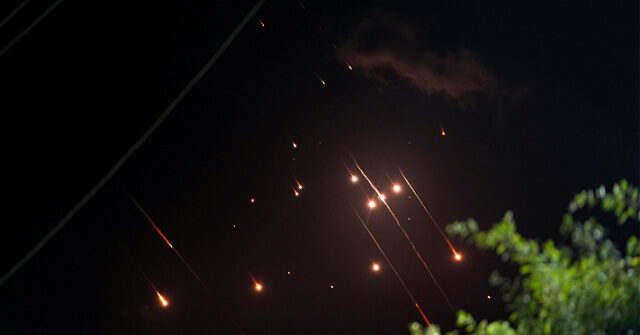In a show of solidarity, the authoritarian regimes of Cuba and Venezuela publicly backed Iran following its missile attack on Israel, which involved the launch of approximately 180 missiles this week. Despite the lack of casualties reported within Israel, this assault represents a significant escalation, marking Iran’s second missile offensive aimed at Israel in just six months. The response from both countries underscores their alignment with Iran, reflecting their shared animosity toward Israel and the United States, which they accuse of exacerbating regional tensions through political and logistical support for Israeli military actions.
Cuba’s communist government, via its Foreign Ministry, issued a statement denouncing what it termed “Israeli aggression in the Middle East.” The statement claimed that the U.S.’s support for Israel had incited further instability in the region, effectively provoking Iran’s retaliatory actions. Pointedly, Cuba asserted its solidarity with nations affected by Israeli military operations and reiterated its long-standing warnings about the risks associated with Israel’s militaristic approach. The narrative framed Israel’s actions as a destabilizing force that could lead to broader conflict if not addressed.
In ultra-critical tones, the Cuban statement referenced the historical context of violence against Palestinians, decrying Israel’s actions as part of a continuum of aggression stretching back nearly a year. This critique conveniently overlooked the recent heinous acts attributed to Hamas — an Iranian-backed terrorist organization — which attacked Israel on October 7, resulting in significant civilian casualties and atrocities. The omission of any reference to the brutality of the October 7 assault by the Cuban regime highlights a selective narrative bent on portraying Israel as the sole aggressor in the conflict.
Venezuela’s socialist government also chimed in, characterizing Iran’s missile attack as a legitimate act of self-defense in light of ongoing threats from Israel. Their Foreign Ministry underscored this perspective by invoking Article 51 of the UN Charter, which acknowledges a nation’s right to defend itself against aggression. The Venezuelan statement further condemned what it described as crimes against humanity committed by the “Netanyahu regime” and criticized the ineffectiveness of the United Nations Security Council, allegedly hindered by the United States’ veto power, thus preventing accountability for Israel’s military operations.
The Venezuelan government called upon the international community to intervene against what it referred to as genocide against Palestinians and others in the region, invoking a need for immediate action to curtail Israeli aggression. The statement echoed the sentiments displayed by Cuba, reinforcing both regimes’ narratives that frame Israel and U.S. actions as imperialistic endeavors intent on dominating the Middle East. Their alignment with Iran and its Hezbollah allies signifies a concerted effort among these nations to collectively resist U.S. influence and support for Israeli military operations.
As both states rally around Iran’s recent actions, they continue to reinforce their positions against Israeli military tactics, including Cuba’s allegation that the recent killing of Hezbollah leader Hassan Nasrallah by Israeli forces was a provocative act that jeopardizes global peace. Utilizing state media, the Cuban government portrayed Iran’s missile strike as a significant retaliatory measure, disputing claims from Israel about the ineffectiveness of the attack and instead suggesting a near-total success rate of the missiles launched. Such pronouncements from both Cuba and Venezuela enhance their political stances, further entrenching their alliances with Iran while framing Israel in a consistently negative light, all amidst a backdrop of complex geopolitical tensions in the Middle East.

